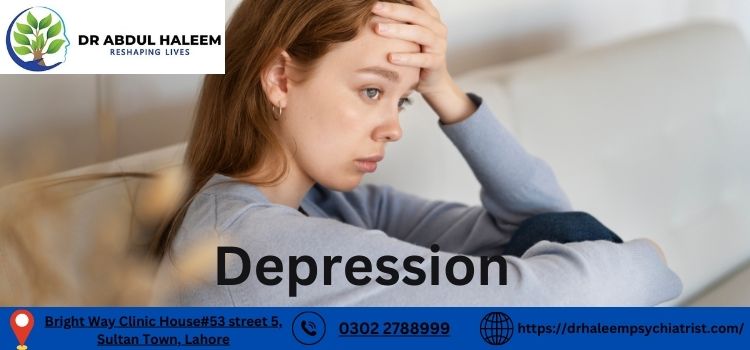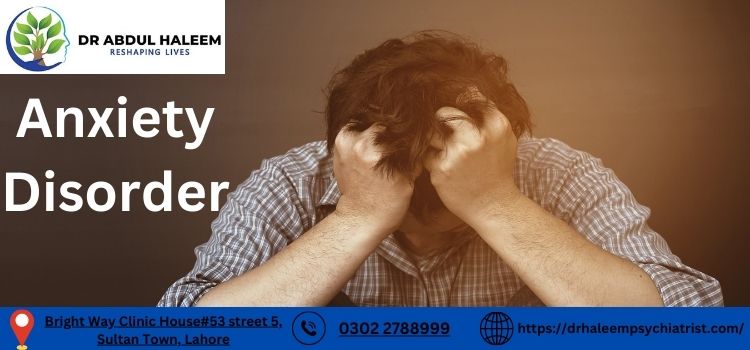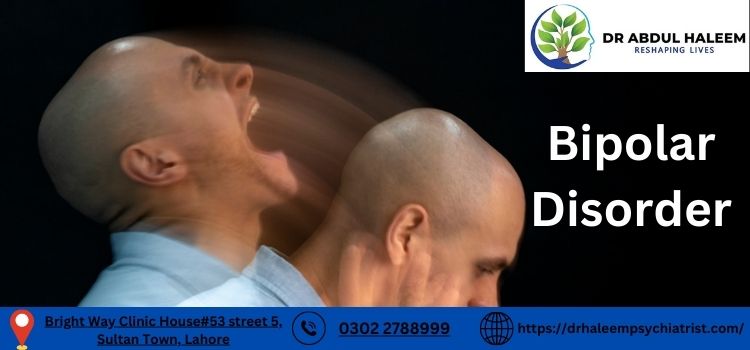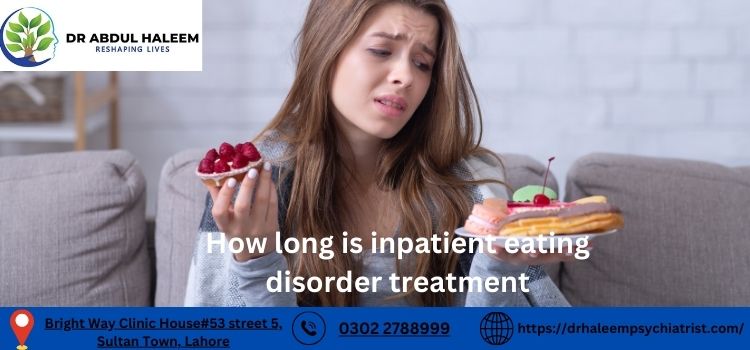Psychiatric disorders are mental health conditions that affect mood, thinking, and behavior. The question arises what are the 5 most common psychiatric disorders? They can range from mild to severe and significantly impact a person’s quality of life. The five most common psychiatric disorders are depression, anxiety disorder, bipolar disorder, schizophrenia, and post-traumatic stress disorder (PTSD).
In this blog post, we’ll take a look at each of these conditions, including their symptoms and treatment options, and provide information on how to get help.
Let’s drive in to get more details.
What are the 5 most common psychiatric disorders?
Are you struggling with a mental health issue? You are not alone. One in five adults in the United States has a mental health condition, according to the National Institute of Mental Health (NIMH). Mental illnesses can range from mild to severe, and psychiatrists diagnose several types of psychiatric disorders that impact moods, behavior, and thinking.
In this comprehensive guide, we will explore the five most common psychiatric disorders – depression, anxiety disorder, bipolar disorder, schizophrenia, and borderline personality disorder – so that patients like yourself can gain insight into their condition as well as helpful resources for treatment.
Depression

Depression is a mood disorder characterized by feelings of sadness, low self-esteem, and lack of energy. It can also involve physical symptoms such as loss of appetite or difficulty sleeping. People with depression often have difficulty functioning in their daily life and may experience thoughts of suicide.
Symptoms of Depression
- Persistent feelings of sadness and hopelessness
- Loss of interest in activities that were previously enjoyed
- Changes in appetite or sleep patterns
- Difficulty concentrating
- Low energy and fatigue
- Feelings of guilt, worthlessness, or helplessness
- Thoughts of death or suicide
Treatment of Depression
Some of the treatments for depression are given below:
Medication
There are a variety of medications used to treat depression, including selective serotonin reuptake inhibitors (SSRIs) and tricyclic antidepressants.
Psychotherapy
This type of therapy can help people develop the skills to manage their depression symptoms. Cognitive Behavioral Therapy (CBT) is one type that focuses on reframing negative thoughts and behaviors too more positive ones.
Light therapy
Also known as phototherapy, this treatment involves exposing the patient to light from a special lamp for several hours each day in order to improve mood.
Lifestyle changes
Eating balanced meals, exercising regularly, and getting enough sleep can help manage depression symptoms.
Alternative therapies
Some people have found relief from their depression symptoms by using complementary and alternative therapies like yoga, meditation, acupuncture, or aromatherapy.
Anxiety Disorder

Anxiety disorder is a mental health condition characterized by excessive worrying and fear that interferes with daily life. It can manifest in physical symptoms such as chest pain, sweating, and increased heart rate.
Symptoms of Anxiety Disorder
- Excessive worrying
- Restlessness or feeling on edge
- Racing thoughts
- Difficulty concentrating
- Sleep disturbance (difficulty falling asleep or staying asleep)
- Shortness of breath
- Muscle tension and headaches
- Irritability, and difficulty controlling feelings of worry
Treatment of Anxiety Disorder
Like depression, anxiety can be treated with a combination of medication and psychotherapy. Some of the treatments for anxiety disorder are given below:
Medication
Anti-anxiety medications (benzodiazepines) and selective serotonin reuptake inhibitors (SSRIs) are some of the medications used to treat anxiety disorder.
Therapy
Cognitive Behavioral Therapy (CBT) and other types of psychotherapy can help people identify their triggers for anxious thoughts and manage them more effectively.
Mindfulness
This technique involves focusing on one’s present moment experiences as a way to reduce stress and increase relaxation.
Lifestyle changes
Eating a balanced diet, exercising regularly, and getting enough sleep can help reduce stress levels.
Bipolar Disorder

Bipolar disorder is a mood disorder characterized by extreme shifts in moods that range from manic (high energy) to depressive (low energy). It can involve periods of feeling really high and then crashing down to feeling really low.
Symptoms of Bipolar Disorder
- Extreme changes in mood and energy levels
- Impulsive or reckless behavior
- Feeling very “high” or euphoric for periods of time
- Racing thoughts and talking quickly (during the manic phase)
- Feelings of depression, hopelessness, emptiness, and irritability (during the depressive phase)
- Difficulty concentrating or making decisions
- Sleep disturbances
Treatment of Bipolar Disorder
Treatment for bipolar disorder often includes a combination of medication, psychotherapy, and lifestyle changes. Here are some treatments that may be recommended:
Medication
Mood stabilizers such as lithium or antipsychotics are used to help manage the manic and depressive episodes of bipolar disorder.
Psychotherapy
Psychotherapy can help people identify triggers for their mood swings as well as teach them coping skills to manage their symptoms more effectively.
Lifestyle changes
Eating a balanced diet, exercising regularly, avoiding alcohol and drugs, and getting enough sleep can help manage bipolar disorder symptoms.
Alternative therapies
Some people have found relief from their symptoms by using complementary and alternative therapies like yoga, meditation, or acupuncture.
Schizophrenia
Schizophrenia is a serious mental disorder characterized by difficulty thinking clearly, hallucinations, delusions, and disorganized speech and behavior. It can be disabling and requires long-term treatment.
Symptoms of Schizophrenia
- Delusions (false beliefs)
- Hallucinations (seeing or hearing things that are not there)
- Disorganized thoughts, speech, and behavior
- Difficulty concentrating and focusing
- Social withdrawal
- Lack of motivation
- Poor hygiene or grooming
Treatment of Schizophrenia
Treatment for schizophrenia involves a combination of medication, psychotherapy, and lifestyle changes. Here are some treatments that may be recommended:
Medication
Antipsychotic medications are used to manage the positive symptoms (delusions, hallucinations) as well as negative symptoms (social withdrawal, lack of motivation).
Psychotherapy
Cognitive Behavioral Therapy (CBT) and other types of psychotherapy can help people manage their symptoms as well as develop coping skills to deal with difficult situations.
Social support
Having a strong social network is important for managing schizophrenia symptoms. Family members, friends, and support groups can be invaluable sources of support and encouragement.
Lifestyle changes
Eating a balanced diet, exercising regularly, avoiding alcohol and drugs, and getting enough sleep can help manage schizophrenia symptoms.
Alternative therapies
Some people have found relief from their symptoms by using complementary and alternative therapies like yoga, meditation, or acupuncture.
Post-Traumatic Stress Disorder (PTSD)
Post-traumatic stress disorder (PTSD) is a mental health condition that develops in some people who have experienced or witnessed a traumatic event such as a natural disaster, war, or car accident. It can cause symptoms like flashbacks, nightmares, difficulty sleeping, and feelings of guilt or shame.
Symptoms of PTSD
- Intrusive memories of the traumatic event
- Flashbacks or nightmares
- Avoidance of people, places, and activities related to the trauma
- Low moods and depression
- Anxiety, irritability, and anger outbursts
- Difficulty sleeping or concentrating
- Feelings of guilt or shame
Treatment of PTSD
Treatment for PTSD usually involves a combination of medication, psychotherapy, and lifestyle changes. Here are some treatments that may be recommended:
Medication
Anti-anxiety medications and antidepressants can help manage the symptoms of PTSD.
Psychotherapy
Cognitive Behavioral Therapy (CBT) is an effective form of therapy used to help people manage the symptoms of PTSD.
Exposure therapy
This type of therapy helps people confront their fears and triggers in a safe, controlled environment as a way to reduce fear and anxiety related to the trauma.
Lifestyle changes
Eating a balanced diet, exercising regularly, avoiding alcohol and drugs, and getting enough sleep can help manage PTSD symptoms.
Alternative therapies
Some people have found relief from their symptoms by using complementary and alternative therapies like yoga, meditation, or acupuncture.
Conclusion
Mental health disorders can have a wide range of symptoms and require different forms of treatment. Now the question arises that what are the five most common psychiatric disorder.
At the end the common types of mental illnesses include depression, anxiety disorders, bipolar disorder, schizophrenia, and post-traumatic stress disorder (PTSD).
FAQs
Frequently asked questions by people
How does psychological disorders affect your health?
Psychological disorders can have a significant impact on your physical health. Symptoms such as fatigue, insomnia, headaches, and digestive issues can all be caused by mental illness.
What are the 5 factors affecting mental health?
The five major factors that can affect mental health are genetic vulnerabilities, physical health, psychosocial factors (including social and economic situations), lifestyle choices (such as drinking or smoking), and environmental factors.
How does mental health affect daily life?
Mental health can affect daily life in many ways. For example, it may cause difficulty concentrating, sleeping, or making decisions. It can also lead to problems with relationships and work performance.
Can mental health affect anyone?
Yes, mental health can affect anyone at any age. While some mental illnesses are more common in certain age groups (such as depression in young adults), all people can be affected by mental health issues.
What is the most easily treatable mental illness?
Depression is one of the most easily treatable mental illnesses. Therapy and medication can both be used to help manage symptoms, and many people experience significant improvements in their mood and functioning with treatment.
What is the difference between a mental disorder and a mental illness?
Mental disorders and mental illnesses both refer to conditions that affect a person’s mental health. The term “mental disorder” is more of a formal, scientific term used in psychology, while the term “mental illness” is more commonly used by the general public. Both terms are used to describe an array of psychological issues.


